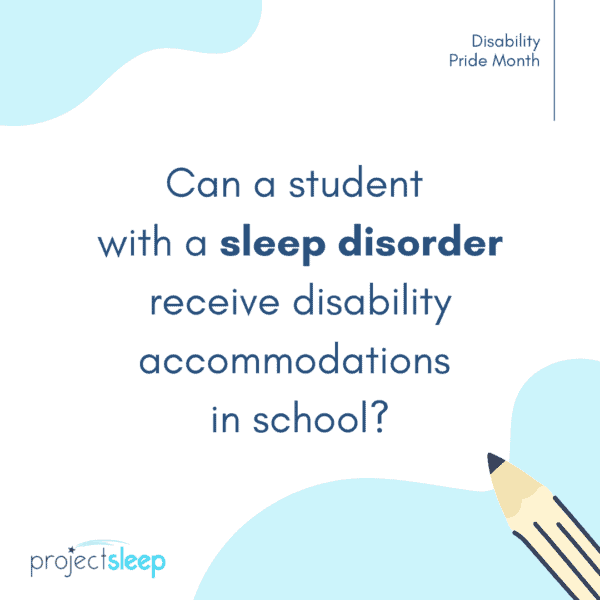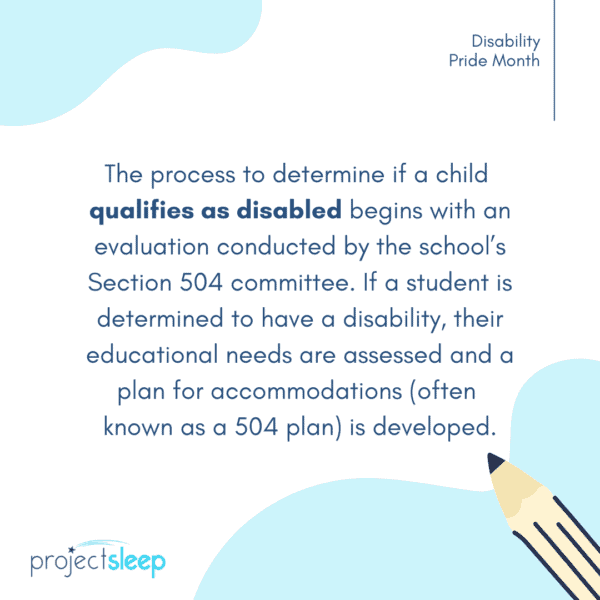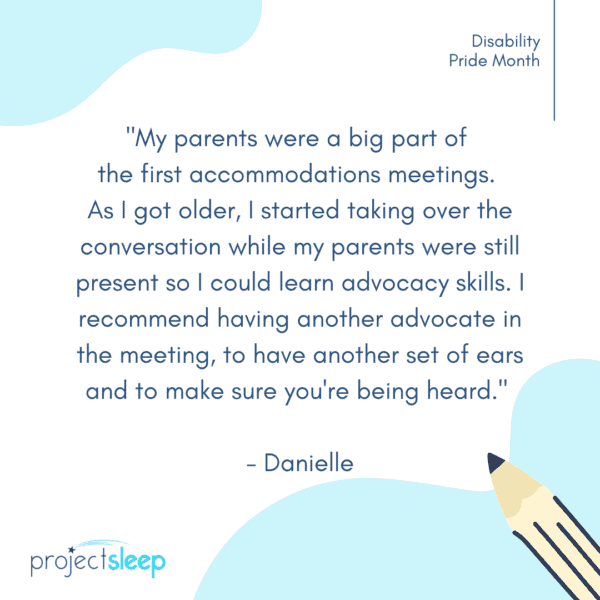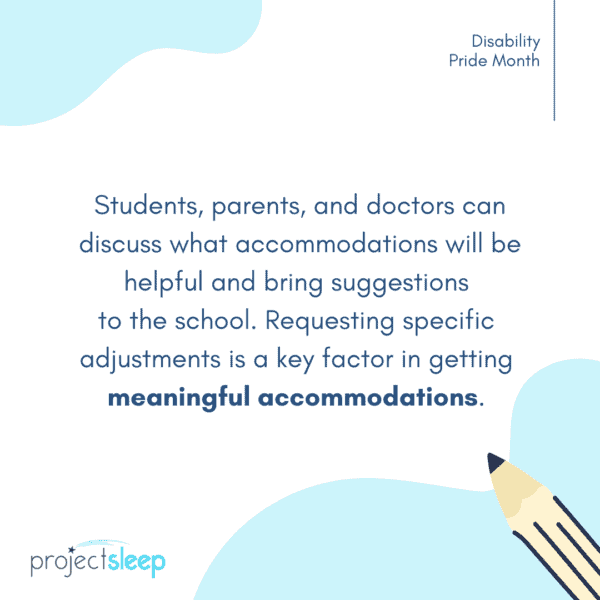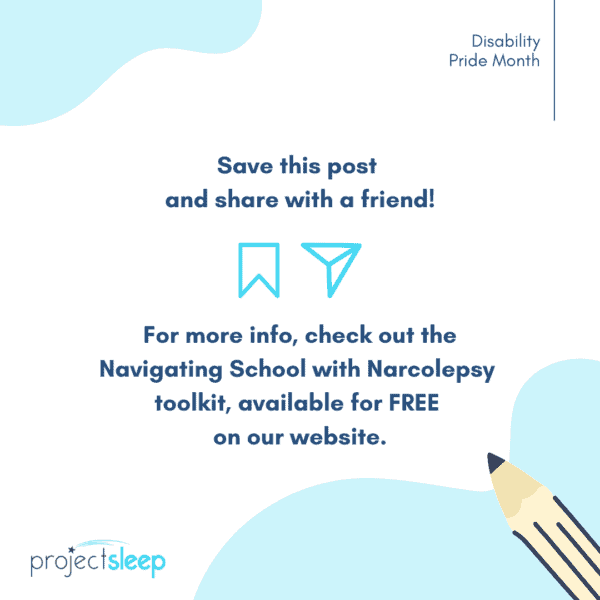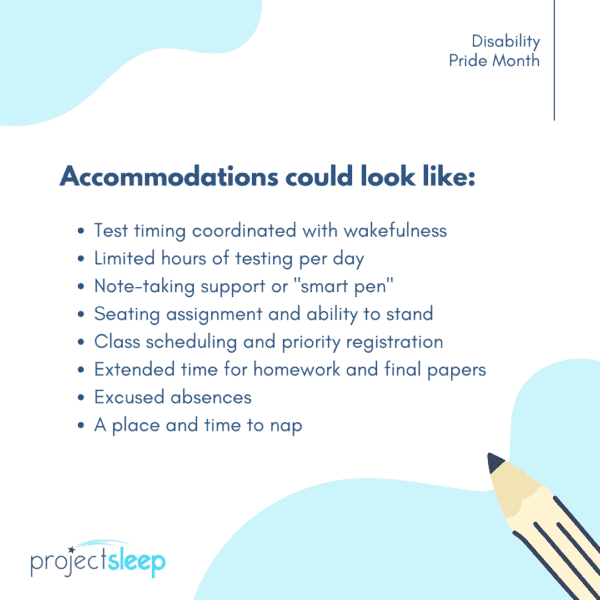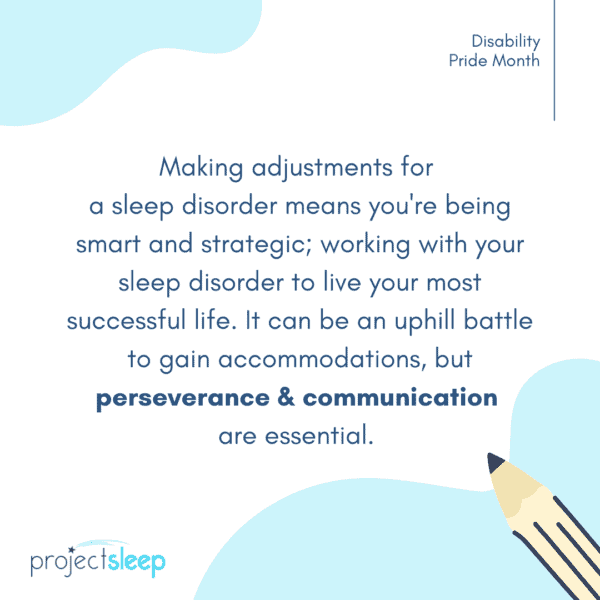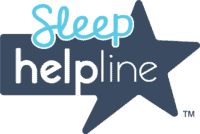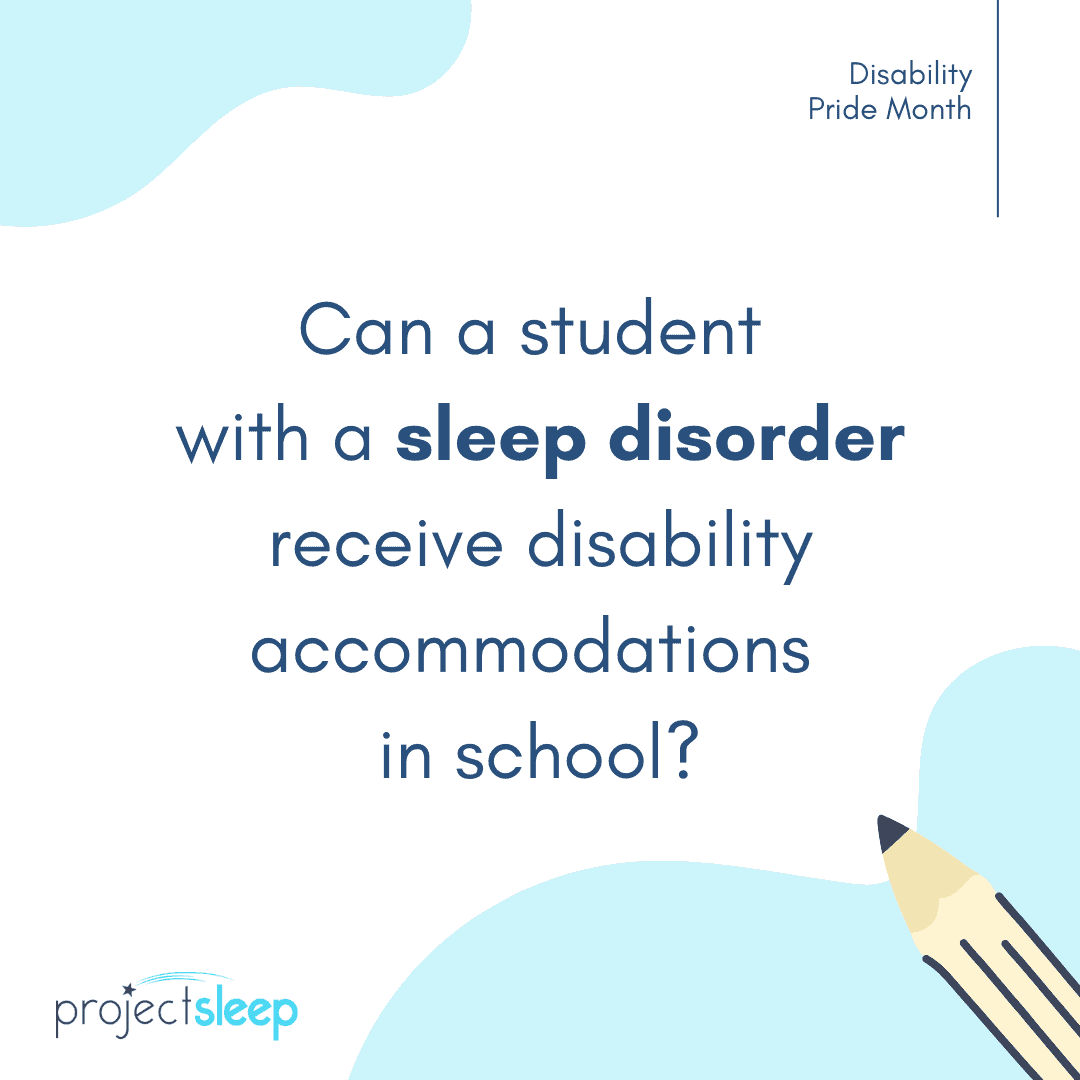
Pursuing an education while living with a sleep disorder takes strength and perseverance. Managing symptoms, medications, side effects, and additional complications can seriously impact one’s academic career. There’s no shame in seeking academic accommodations to help mitigate these challenges, as students with sleep disorders have the right to an equitable education. So, how can schools and families work together to ensure opportunities for success?
I didn’t have a choice about taking accommodations at first because I was so young when I was diagnosed. As I got older, they turned out to be very helpful and I was very appreciative.
— Kenya

